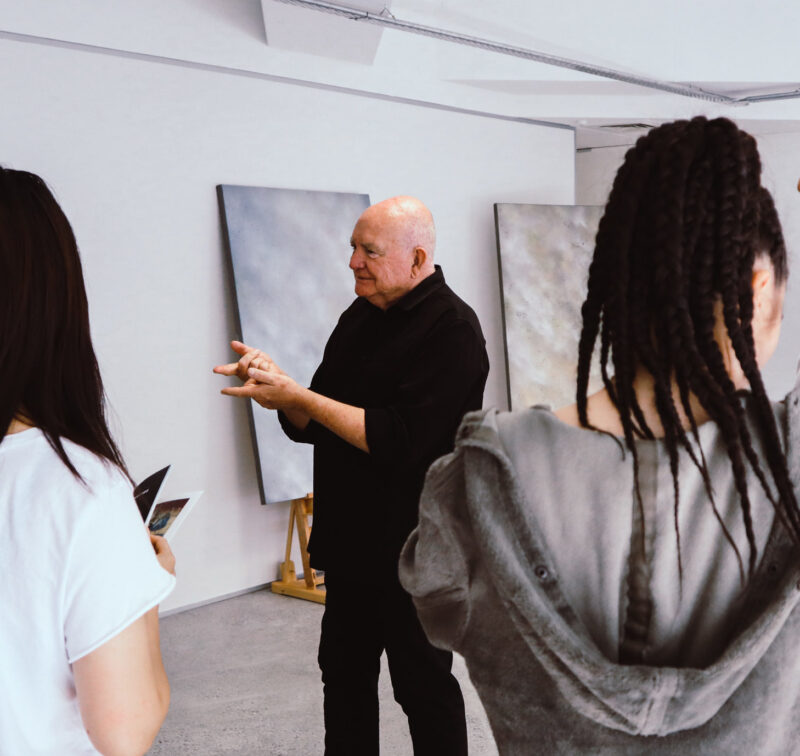Certificate in Fashion
The Certificate in Fashion programme introduces students to the foundational principles of technical skills, textile knowledge and creative processes to design, construct and present fashion designs.
Through a variety of practical projects students learn patternmaking and garment construction skills, fashion industry processes, and creative fashion design concepts.

Duration
18 Weeks, full-time in Symonds + Manukau + Wellington
Qualification
Certificate in Fashion (Level 4) 60 credits
Costs
Domestic $3,748 + $150 Student Services Levy International $9,100 + $150 Student Services Levy Fees free may apply All 2025 fees are subject to change and regulatory approval.
View full fees
Certificate in Fashion Course Outline
The Certificate in Fashion programme introduces students to the foundational principles of technical skills, textile knowledge and creative processes to design, construct and present fashion designs, evidenced through portfolios and finished garments.
Through a variety of practical projects students learn patternmaking and garment construction skills, fashion industry processes, and creative fashion design concepts.
This is supported by conceptual content, knowledge, and practice. Students develop appropriate design-thinking skills, and gain a foundation of fashion knowledge, so they are equipped with learning strategies and skills for further tertiary study.

Why choose Whitecliffe School of Fashion?
- We offer programme delivery in the practical, hands-on, technical aspects of the fashion industry.
- Each year we have high numbers of successful employment placements within the fashion industry with graduates in skilled positions such as fashion design, merchandising, production, and manufacture, fashion buying/styling/retail, and other areas of production management and commercial fashion design.
- Students in all programmes are immersed in activities that are rich and real; their learning is personally meaningful and is an active processing experience.
- Classrooms are set up to replicate apparel and fashion workrooms, and practical, industry-based sessions replicate working in the industry.
- Our tutors and support staff bring extensive and valuable industry knowledge to the programmes, and in preparing students for a career in the fashion industry.
- Multiple teaching methods and delivery strategies are used to meet the needs of our target learner group and maximise opportunities for students to receive and retain information, promote active engagement with materials, and engage in their own learning and the learning of others.
- Work experience and internships are a valuable and integral part of all our programmes and enable students to put their learning into context.

Graduates will:
Apply a range of technical skills, technologies, textiles knowledge and creative processes to design, construct, and present fashion items.
- Use fashion industry professional practices to safely construct fashion items in response to a design brief.
- Students will gain knowledge of the elements and principles of fashion design through the application of design concepts and creative techniques.
- Knowledge of historical and contemporary fashion and clothing styles will be used to inform the creation of a range of designs.
- Apply knowledge of fashion industry supply chains to inform selection of textiles.
- Be able to use knowledge of fashion design principles and practice to evaluate the quality of fashion items.

Key Information for Students
NZ Government key information link for students, that provides more information to support your decision making for this programme

Admission Requirements
Domestic Student Entry Requirements:
- Completed application form
- Minumum Age: Students must turn 17 within their first year of study at Whitecliffe
No formal qualification or portfolio is required for admission
International Student Entry Requirements:
- Completed application form
- Passport copy
- Minimum Age: Students must turn 18 within their first year of study at Whitecliffe
English language level of overall IELTS score (Academic Format) of 5.5 (no band score lower than 5) or equivalent (Refer English Proficiency Outcome Table, p.87)
BYOD (Bring Your Own Device) Requirements:
Recently we have found ourselves working remotely due to COVID-19, we recommend that you have your own device to support your studies. The following specifications are intended to help you make the best choice of laptop, desktop or tablet for the job.
Recommended IT Specifications:
Minimum Hardware requirements
- Mac - Intel processor with 64-bit support; 2 GHz or faster processor with SSE 4.2 or later
OR - MacBook Air with M1 Chip
OR - Intel® or AMD processor with 64-bit support; 2 GHz or faster processor with SSE 4.2 or later
- 8 GB RAM (Recommended 16 GB)
- 250 GB SSD or higher hard drive with 10GB free space minimum
- Wireless capability 802.11n dual-band
- Up-to-date antivirus software
Minimum Operating System
- Windows 10 (64-bit) version 1809 or later; LTSC versions are not supported
OR - Apple macOS Mojave (version 10.14) or later
- Internet and data plan.
Not Supported:
- Chromebooks
- Windows X or Windows S OS
- Tablets (except Windows Surface Pro or iPad Pro)

Faculty

Doula Matheos
Programme Leader, Fashion Technology Programmes (Wellington)Doula graduated with an Advanced Diploma in Fashion Design and Technology from Wellington Polytechnic, and achieved 2 awards in the DuPont Lycra Fashion Awards.
Continue reading
Pip Stevenson
Lecturer, School of Fashion + SustainabilityPip has been working in the Fashion Industry since completing her Bachelor of Design (Fashion) at Otago Polytechnic in 2002.
Continue reading
Angela Newson
Lecturer, School of Fashion + SustainabilityAngela holds a Diploma in Fashion Design and Technology from Massey University, where on completion she was bestowed the Clothing Institute Award for Tailoring.
Continue reading
Harita Kapur
Lecturer, School of Fashion + SustainabilityHarita holds a Master's Degree in Sustainable Design from Massey University, New Zealand.
Continue reading
Giles Peterson
Lecturer, School of Fashion + SustainabilityGiles lectures in contextual studies in New Zealand / Pacific art and design history; Contemporary art and design history, Fashion theory and more.
Continue reading
Susan Barter
Lecturer, School of Fashion + Sustainability30 years as a designer, practitioner and maker in the Fashion industry was a gateway to the academic world where Susan completed a Masters of Art & Design at AUT.
Continue reading
Heather Hohenberger
Lecturer, School of Fashion + SustainabilityHeather has been involved in the Fashion Industry since she and her husband bought a fashion production company in 1980.
Continue reading
Christina Doherty
Lecturer, School of Fashion + SustainabilityChristina has made wonderful and diverse career out of Fashion Design, focusing on lingerie design + women's outer-wear.
Continue reading
SuJin Lim
Lecturer, School of Fashion + SustainabilitySuJin is an experienced jewellery CAD designer who has been serving the New Zealand industry since 2010
Continue reading
Julia Marin
Lecturer, School of Fashion + SustainabilityJulia was trained at UBA (Universidad de Buenos Aires) and SURJA (Sindicato Unificado de Relojeros y Joyeros de Argentina) in Argentina; Peter Minturn Jewellery School and MIT in New Zealand. She also works as a custom jeweller, does film and conceptual work.
Continue readingWhere could this programme take you?
After completing the Certificate in Fashion, you can further your study in the Level 7 Bachelor of Sustainable Fashion Design.
Jobs related to this programme
Entry-level Machine Operator
Trainee Machinist
Production Assistant
Cutting Room Assistant
Warehouse Assistant
Quality Control
Industry Partners
Fashion + Sustainability






Talk to our team

If you would like to ask us a question or request more information, please detail your enquiry using the form below. If you would like you can contact us directly on 0800 800 300, email us or use the contact us form.